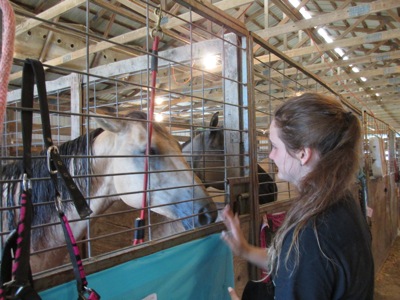Tuesday, August 12th, 2014
Proposed formula would alter distribution of local funds
By William Kincaid
CELINA - A township-led initiative to change how local government funds are divided among the county's 14 townships would drastically alter the amount of money received by some of them.
Mercer County Auditor Randy Grapner, representing the county budget commission, told Celina City Council members on Monday night that nine of the 14 townships have voted in favor of changing a decades-old method of distributing state funds.
For the proposal to move ahead, the budget commission needs the approval of Celina's city council, Mercer County commissioners and a majority of the 22 political subdivisions.
Council members later passed first reading of a resolution supporting the change. It would not impact the funding coming into Celina.
Grapner plans to present the proposal to county commissioners today.
If enacted, the budget commission would allocate the townships' 18 percent share of total county local government funds - next year estimated at $190,630 - based on a new formula of thirds.
"They have asked us then to adopt a formula which is based on third, third and third - population, valuation and road miles. These are the things they feel impact the townships," Grapner said. "A lot of those that have more road miles obviously have more expenses connected to those road miles."
Of the 14 townships, those that stand to lose funding, Gibson, Granville, Marion and Recovery townships voted against the proposal, Grapner said, while Washington Township wanted a formula based solely on miles.
The new formula could be implemented next year or phased in over the next two years, he said.
"We don't want to have to cause fiscal emergency for any of the entities involved here," Grapner said. "This two-year phase-in would reduce the pain, spread over two years. We have not made a decision as a budget commission. We'll be reviewing both of these situations, but this one (phase-in) has been looked on with favor."
Under the new formula with no phase-in, the following townships are poised to lose money: Franklin Township, 13.35 percent cut or a loss of $2,544; Gibson Township, 81.53 percent, $8,081; Granville Township, 28.65 percent, $3,893; Marion Township, 25.87 percent, $5,814; Recovery Township, 65.02 percent, $7,090; and Washington Township, 16.74 percent, $2,065.
Other townships stand to make significant gains, such as Jefferson Township, an increase of 64.19 percent or an additional $14,745; Hopewell Township, 62.33 percent, $6,820; and Center Township, 56.78 percent, $6,083. Funding to Blackcreek Township would increase 40.47 percent, $4,196; Butler Township would increase 16.04 percent, $2,553; Dublin Township would increase 40.49 percent, $4,546; Liberty Township would increase 26.80 percent, $2,824; and Union Township would increase 30.86 percent, $2,982. The gains and losses to the townships would be less significant next year if the budget commission chooses to go with a two-year phase-in.
"Nine of them felt that it was unfair the way it was being done and quite frankly, I can tell you we have no rhyme or reason (to the current method). We couldn't tell you why it was being shared the way it was," Grapner said.
According to Grapner, local government funding started in the 1930s. In the 1950s, the county had the option to adopt a statutory method of funding, which Grapner said is lengthy and complex, or an alternative method.
The county chose the alternative method, which Grapner said was probably needs based, which eventually was tweaked to become what it is today.
"We have accepted the (thirds) formula that (townships) have asked us to choose from, and we're now into the phase where the statute suggests that we need to have a positive vote by the largest metropolitan area - the municipality, which is Celina - a positive vote from county commissioners and then simply a majority of all the subdivisions," Grapner said.
Grapner noted that Mercer County recently lost $1 million after the state legislature in 2011 moved to cut local government funding by 50 percent over two years.
"You lost 50 percent of yours, the county lost 50 percent of theirs and the townships lost 50 percent of theirs. This has been a difficult time trying to cut services, cut expenses," Grapner said. "A lot of our townships are giving up their benefits. They cut their insurance programs to the bone, some of them have cut it out entirely. So they are doing their part to try and control the expenses."
The subdivisions have also been hit hard by the phase out of the estate tax and other funding cuts, he said.
"Do you think, in your opinion, that this a fair approach - that it allows everybody to receive those funds fairly?" councilman June Scott asked.
Grapner replied the proposal was requested by the nine townships not the budget commission.
"This is the townships' share of the local government funds. Again, our perspective as budget commission is going to be more addressing whether or not we're going to be creating a fiscal crisis for someone, and we will deal with that," Grapner said. "This has been determined by the townships to be a fair and equitable way to share these funds."
Councilmen Jeff Larmore and Fred LeJeune both said it's time to modernize the township funding formula.
Each year, Mercer County receives and allocates local government funding. In 2014, $974,353.70 is expected to be divvied up, with the county to receive 43 percent, or $418,972; the nine county corporations to receive 39 percent or $379,997; and the 14 townships to receive 18 percent, or $175,383.
Of the amount set aside for corporations, Celina is set to receive 48.5 percent, or $184,565.
